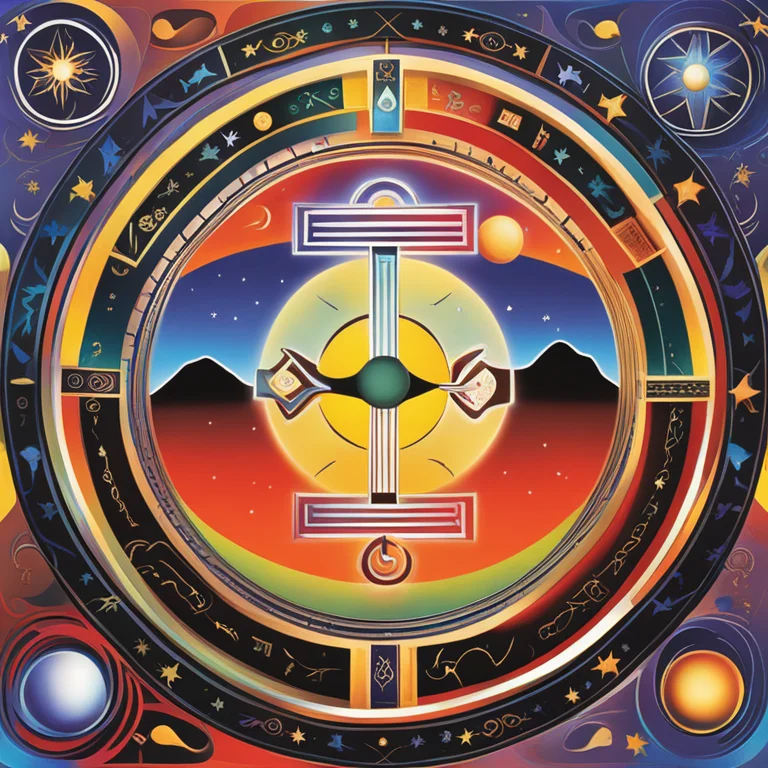
The Origins of Zodiac Signs: A Historical Synopsis
Delve into the ancient beginnings of zodiac signs and understand their evolution into modern astrology.
article by Priya Deshmukh
The Dawn of Astrology
Astrology, and the zodiac signs at its heart, have a lineage that stretches back thousands of years. The practice of charting the planets and stars to predict earthly and human events is ancient, with roots buried deep in several early cultures. It was the Babylonians, around the 5th century BCE, who first developed an organized system that laid the groundwork for contemporary astrology. They recognized that the celestial dance could mirror the earthly realm and sought to divine meaning from the patterns they observed overhead.

Forming the Zodiac
The zodiac, as we know it today, was shaped by the Greek astronomer Ptolemy in the 2nd century CE. However, the concept of dividing the celestial sphere into sections based on the sun's yearly path, or the ecliptic, began with the aforementioned Babylonians. This path was broken into twelve parts, each named after the constellation that happened to lie in that segment. This framework was eagerly absorbed and adapted by the Greeks after they encountered it during the Hellenistic period when Alexander the Great's conquests bridged East and West.
Refinement and Spread of Zodiac Knowledge
Through the ensuing centuries, the astrological system continued to evolve, influenced by the Romans after they inherited it from the Greeks. By the time of the Roman Empire, astrology had become widespread, with horoscopes being cast for everything from predicting battles to choosing leaders. The zodiac became a common feature of everyday life, informing decisions large and small. With the fall of the Roman Empire, astrology waned in Europe but flourished in the Islamic world, where scholars like Albumasar further refined it.
Zodiac Signs and Modern Horoscope
Modern horoscope construction began to take shape in the 19th century with the birth of psychological astrology, which tied human characteristics to astrological interpretations. In the contemporary era, technological advancements and the internet have made astrology more accessible than ever. Horoscopes for 2024 onwards incorporate both the ancient practice of observing planetary movements and modern innovations in psychological understanding to offer guidance and predictive insights for life's many dimensions.
Current Astrological Practices
Today, astrology has regained popularity and is embraced by many seeking self-knowledge, guidance, or simply entertainment. The zodiac signs and their corresponding traits provide a framework for individuals to explore personality, compatibility, and future possibilities. Whether through detailed natal chart analyses or daily horoscopes, the principles that began with early astronomers continue to resonate, putting individuals in touch with a cosmic narrative that has unfolded over millennia.
The Enduring Legacy
Although astrology and zodiac signs are often viewed through a skeptical lens by the scientific community, their cultural impact is undeniable. From ancient times to 2024 horoscope predictions, what pervades is human desire to find meaning and pattern in the vastness of space. The enduring fascination with zodiac signs demonstrates not just an interest in the stars themselves, but a deeper longing to comprehend our place within the universe and to glimpse the threads that might tie our destinies to the celestial tapestry.
Published: 1/9/2024
Modified: 1/10/2024
More predictions
Come back here soon to learn more about yourself and your future


The Fluidity Of Astrological Forecasts
Examining the fluidity of astrological forecasts and the potential for personal agency to change our cosmic paths.


Can Astrology Predictions Be Altered?
Explore whether the predictions of astrology have the flexibility to change and if individuals can influence their astrological destinies.


The Ancient Beginnings Of Astrology
Delve into the ancient beginnings of astrology and discover how this mystical practice captured the human imagination, from Babylonian times to the modern-day.